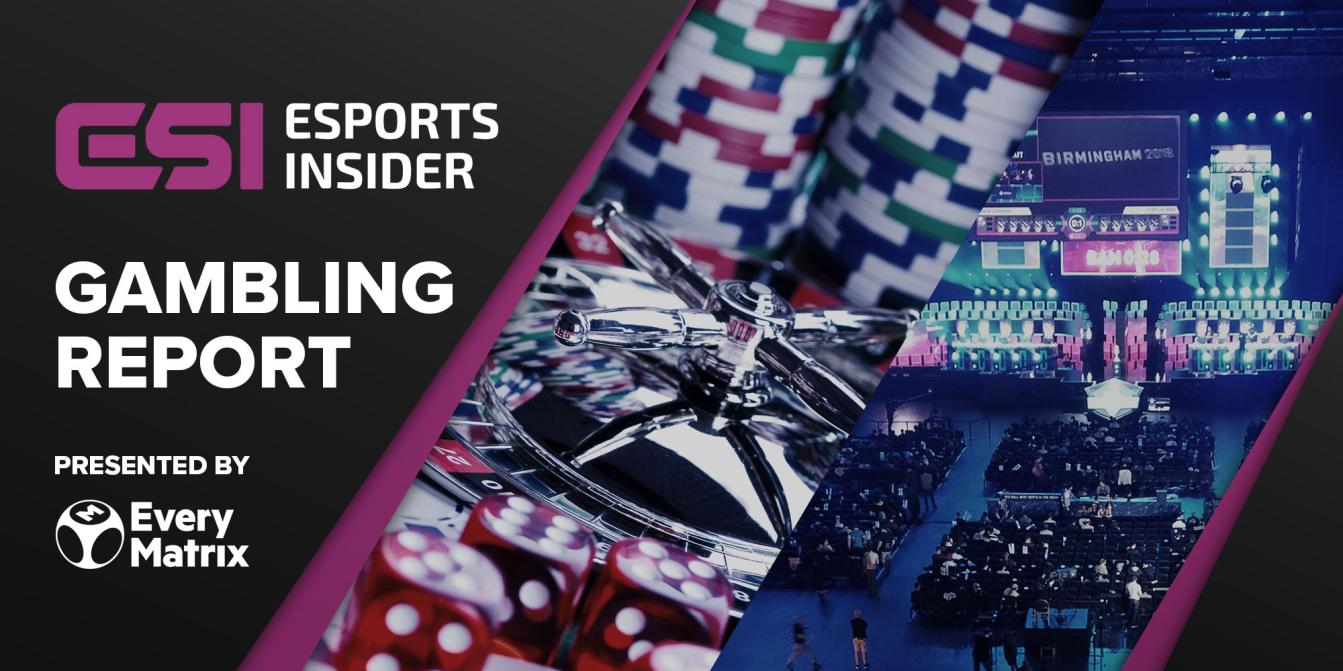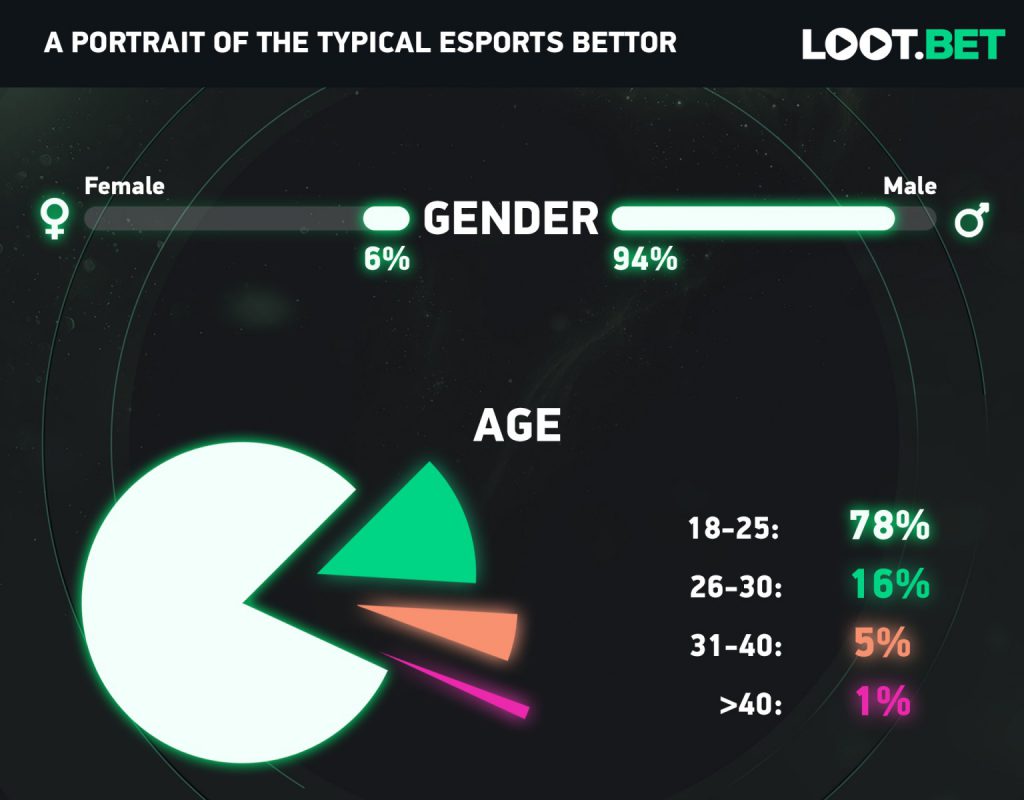The ongoing COVID-19 pandemic has spared few industries. Mandatory stay-at-home orders at each corner of the earth have forced people, schools, and businesses indoors to work within a new digital framework. Although for some, there’s simply no alternative.

Casino floors from Vegas to Macau are eerily quiet in the wake of the global pandemic. Traditional sports leagues and events have been brought to a grinding halt almost worldwide to avoid large gatherings of people, and to flatten the curve of a highly-contagious virus. While a great many favourite sporting pastimes have evaporated, so has that of many sportsbooks’ revenue generation.
Both bookmakers and bettors are hungry for wagering opportunities, and esports are close to the only show left in town. Previously sitting in the peripherals of many major sportsbooks, esports is now being viewed as an antidote to the deficiency of sports betting markets.
Today's eNASCAR race attracted a similar amount of betting handle as to what was bet on Belarus soccer @WilliamHillUS books in Nevada.
Russian table tennis remains the most popular betting market, because of the sheer number of matches, per WH chief Nick Bogdanovich.
— David Payne Purdum (@DavidPurdum) April 5, 2020
Esports betting has more than just a buzz around it at the moment, indeed it has done for a while, but there are now more eyes on it than ever before. Whilst Counter-Strike: Global Offensive and Rocket League have broken concurrent player records, and streaming platforms Twitch and YouTube have witnessed sizable increases in viewership, this is a market which is no longer an accessory for gambling operators, but a necessity during the current climate. With this massive underlying opportunity at hand, the ESI Gambling Report has made its return, emerging from the shadows, to evaluate the current scope of esports betting.
What’s happening
The COVID-19 pandemic has taken a toll on the world as we know it – the gambling industry entirely unspared. A lack of traditional sports betting markets and the closing of physical casino destinations has left operators desperate for a solution to bandage bleeding revenue streams.
Bookmaker holding company Flutter Entertainment, which includes under its umbrella brands such as Betfair, Paddy Power, and FanDuel (and which has a pending merger with The Stars Group, which includes Sky Bet) is but one clear-cut example, updating shareholders that earnings could see a $135.6m decline over sporting event restrictions. Bricks-and-mortar casinos have been forced to close their doors with seemingly no end in sight. On April 1st, Nevada governor Steve Sisolak extended the state’s stay-at-home order through the end of April; sending casino stocks tumbling with damage assessments growing by the day.
RELATED: Nevada regulators permit eNASCAR and ESL One Los Angeles betting
Esports, although having experienced similar blows of its own dealt by the pandemic, has served as somewhat of an anomaly to all this. The digital nature of gaming has ultimately allowed for a smoother pivot to be made from arenas of impassioned fans to an entirely online structure. As we’re seeing, it’s not tampering very much with the product, either.
Steam has just achieved two new records.
Highest Peak Concurrent User Count ever: 23.4 million
Highest Number of Concurrent In Game Players: 7.25 million
Steam has continually broken records this month as lockdown and self isolation leads to surge in at home gaming. pic.twitter.com/Z1VuB3VYst
— Daniel Ahmad (@ZhugeEX) March 29, 2020
Despite being equally as vulnerable to live event cancellations, most esports tournaments and leagues have made a seemingly seamless transition to this new online framework. It’s a case of back to their roots as it were, for some of the more hardened industry veterans at least. Impressively fast turnarounds have seen a quick, digital revival of major tournaments and event series such as the League of Legends Championship Series (LCS), ESL Pro League, and the ESL One Los Angeles Dota 2 Major to put esports back on the fast track without too much of a hitch.
All things considered, the esports agenda has remained relatively unchanged. With plenty of upcoming events, sportsbooks are beginning to develop a serious appetite for esports. On the other hand, bettors are expanding their own horizons by having a flutter on an esports market. Together, it’s a perfect storm – and we’ve done the work to find out just what’s happening in between the lines.
A slice of the esports betting market
Betting on esports is by no means a new concept. The handle has grown alongside the proliferation of the sport itself, with the global esports betting market forecast to reach $17.2 billion (£13.9 billion) by the end of 2020, according to Wholesale Investor. Bubblings of esports in the gambling world have grown to overflow the chalice of conversation; and as we’ve learned, the current rise of esports betting is more than just talk.
Bookmakers are starting to explore the competitive gaming category, while established esports books are seeing massive surges in activity. On March 18th, esports betting platform Luckbox reported a 54 percent upswing in new player registrants following cancellation of the English Premier League.

In conversation with Quentin Martin, CEO of Luckbox, he told Esports Insider: “The uptick is across the board and globally. As well as an increase in registrations, we’ve noticed an increase in average bet size – almost double since February. Almost every KPI is up during the past fortnight. This coronavirus outbreak is clearly going to make things challenging for many companies and those of us in esports are very fortunate that, in the main, business is able to continue pretty much as usual.”
RELATED: Luckbox appoints Quentin Martin as CEO
Key crossovers between esports and traditional sports, such as the eNASCAR iRacing Pro Invitational Series, are being brought to life with tremendous success and to great fanfare to boot. These collaborations, previously a pipedream for esports, are now showcasing the “immense potential of esports,” according to Rivalry’s Chief Marketing Officer, Kevin Wimer.
“Mainstream media is putting out headlines on esports being the only sport now, and on our end we have seen traditional sportsbooks that previously were not too active marketing in esports coming downstream and looking to get involved,” Wimer told Esports Insider. “Opening up the immense potential of esports to a whole new market, who is almost forced to pay attention with no traditional sports going on, is certainly a bit of a catalyst for the entire industry.”
RELATED: NBA 2K Players Tournament to air on ESPN
Even the National Basketball Association (NBA) has entered the ring with its own activation surrounding basketball simulation game NBA 2K. The NBA 2K Players Tournament will take 16 of the league’s most well-known and pit them against one another live on ESPN. These collaborations are putting esports in the public eye, and its betting precinct is beginning to see the benefit.
Where’s the movement?
Generally speaking, the most popular esports titles can be difficult for newcomers to understand. The trio typically referred to as the ‘big three’ – CS:GO, League of Legends, and Dota 2 – combined accounts for 85 percent of the esports betting handle, according to Narus Advisors and Eilers & Krejcik Gaming. But to those foreign to esports, more attractive betting opportunities lie within secondary competitive titles as esport betting aggregate platform SickOdds CEO and Founder, Tom Wade, explained.
“Second tier esports titles such as Rocket League, FIFA, F1 Esports and Call of Duty have all seen traffic increases of over 200 percent throughout the platform over the past two weeks,” Wade said. “This acts as a great catalyst and ‘gateway drug’ into esports and the betting that comes with it.”
Malte Hegeler, Head of Product Development for OddsMatrix, noted seeing a similar trend. “In the past weeks, we have witnessed incredible growth of these titles (FIFA & NBA 2k), making up 80% of all bets we’ve seen in esports. This is mainly because cross-over from traditional sports is excellent and bettors can easily understand that the offered betting markets and formats are the same as in the real sports.
“At EveryMatrix, esports now adds 65% turnover on top of the traditional offering, and it’s growing. For bookmakers, the adoption rate of FIFA and NBA 2k among traditional bettors is a blessing during this crisis. We actually see players betting more often as FIFA matches only take between 8-15 minutes while a football match lasts close to 2 hours.”
This isn’t to say traditional sports punters are shying away from the heavy-hitters of the esports world. It may in fact just point towards a previous interest being pushed across the bet slip finish line in a world without sports. The United Kingdom Gambling Commission licensed esports bookmaker Midnite, for example, told Esports Insider it has experienced its “strongest month yet.”
RELATED: Midnite raises over $2.5 million in seed round
“All the attention has shifted to esports with sports being postponed. Even the heavyweight sportsbooks are pushing FIFA, ESL Pro League, and other esports,” said Midnite’s Founder, Nicholas Wright. “With more fans at home and watching esports, we have seen our strongest month yet. There is no tunneled focus on specific esports titles, but we’ve seen a lot of interest in CS:GO, League of Legends, Rocket League and Call of Duty when matches started to operate again. Now that we have launched our public beta we have seen a rise in accumulators and Match Winner markets, which are more appealing to our casual users.”
Clutching onto the opportunity
It would be wrong to say operators are capitalising on the current crisis situation created by the COVID-19 pandemic; in the same breath, operators with online offerings are attempting to strike while the iron is hot. The UKGC has reported a rush of activity over the last several weeks, prompting them to issue a pair of warnings to its licensees to act responsibly and nurture their consumers.
If there’s any silver lining, it’s that online betting will see dramatic increases in activity and volume during this time. Moreover, sportsbooks with little experience catering to the esports audience will have an opportunity to break the ice. Esports betting platform LOOT.BET recently outlined what the common bettor looks like, and why it’s important to know your customer.

Though a number of operators are struggling to survive the times, findings show bettors are risking more frequently while staying indoors at their homes. Given the situation at hand, the time is ripe for esports betting; and for a few, the stars have aligned perfectly.
Esports data platform GRID and Las Vegas-based gambling company GameCo formed a powerful partnership on March 25th to bring esports betting products to North American casinos. The collaboration will see GRID’s esports data and streaming solution integrated into GameCo’s Video Game Gambling Machine offerings and partner casino destinations, both land-based and online.
RELATED: GRID and GameCo: Building an esports betting product for all
The framework is said to allow the pair to “establish the landscape” for esports betting products in North America. More impressively, GRID founder and CEO Moritz Maurer believes the current surge in interest and demand will “be a brilliant driver for esports as a whole.”
“I think betting done the right way can be a brilliant driver for esports as a whole. It has proven already as a massive factor for sustainability,” Maurer said. “The ecosystems thriving the most – they all have a flourishing betting segment and if it’s the right balance between oversight, control, and regulation but also the ability for brands to properly enter, I think it’s a very positive thing as a whole.”

In February, betting media group Better Collective made a big splash with its acquisition of Counter-Strike news hub HLTV.org in a deal said to be worth £29.7 million. Sporting an impressive portfolio of iGaming brands under its umbrella, HLTV.org would arrive at Better Collective at a time when esports is on the cusp of explosive growth. Affirming its current prosperity, Better Collective CEO & Co-founder Jesper Søgaard told Esports Insider he expects the market will accelerate during this time.
“Esports is a sport that is growing in interest and already has an underlying strong growth. We expect this growth will continue, also in a long-term perspective. When traditional sports across the world are cancelled due to the pandemic, bettors to some extent turn to other sports and events to place bets. In the short term, we, therefore, expect betting on esports will grow faster than otherwise would have been the case.”
RELATED: HLTV.org acquired by Better Collective for €34.5 million
“Before the acquisition of HLTV.org, Better Collective had a limited exposure towards esports,” he continued. “However, here we could already see a growing interest in our esports content. Data and research show that esports, in general, is growing rapidly in interest and the same goes for betting on esports.”
By some measure, this extension is already visible. In the United States, the Nevada Gaming Control Board has approved the state’s licensed sportsbooks to wager on ESL Pro League Season 11: North America, ESL Meisterschaft, ESL One Los Angeles, and eNASCAR. Gambling giant William Hill has already notified the Control Board of its intention to accept bets on such events. Soon enough, a majority of gambling stakeholders will follow.
RELATED: Nevada regulators approve betting on ESL Pro League
Meanwhile, in New Jersey, a bill was motioned and advanced to allow legal, permissible esports betting on a full-time basis. The bill, A637, has been brought into the hands of the Speaker for consideration. The Garden State, which was a catalyst in the repeal of PASPA, will presumably be looking to grab this market by the horns at its earliest convenience.
United States regulatory guidelines position esports in a way which makes approving wagers a toilsome endeavour to navigate. Under the current framework, each esports event requires separate licenses and approval processes to accept bets. While historically, these one-off exemptions have been few and far between in the US, the aforementioned lot arrived within two weeks of each other. Rahul Sood, Co-founder and CEO of Unikrn explained that “regulators are willing to move quickly right now,” in an interview with Legal Sports Report. Sood is well aware, because, as he told Esports Insider, his “phone has been ringing off the hook since it started.”
RELATED: Supreme Court decision permits sports betting in US
“I think you’re going to see states like New Jersey kind of adopt it and then other states will follow. It will become a snowball effect eventually,” Sood said. “With all these operators pushing on it, they’re doing a lot of the leg work to get [esports] where we need to go. So, I think it starts in New Jersey and then the dominoes will fall from there.”
For better, or for worse?
It’d be impossibly naive to predict where exactly esports betting is heading from here. Although, it seems cut-and-dry its betting handle is top of mind for a number of operators and companies looking to fill the void left by traditional sports. For better or for worse, the gambling industry is, as Sood explained, moving very fast to advance esports betting into a working position.
Across all of our conversations however, a shared sentiment is that this market should be approached carefully. Despite creating an exciting atmosphere for the esports betting industry, Nicholas Wright believes “it is crucial that operators approach the opportunity responsibly.”
RELATED: Esports Insider and ESIC partner for ESI London
On the subject of integrity and player protection, there is a lot to unfold when it comes to a global surge in interest and activity around esports betting. In speaking with Esports Integrity Commission’s Ian Smith, similar undertones of caution and vigilance were present.

“We’re at the beginning of an exploration of what works and what doesn’t. But the key question is: what events, what leagues, what tournaments, what games are safely presented in a way that makes them a reasonable risk for a betting operator or regulator,” Smith told Esports Insider. “The issue of integrity within that competition will be a hell of a long way down [the operator’s] list of priorities. And while some will address it, others won’t because there’s so much urgency. And when you put urgency alongside ignorance, you don’t generally get a good result.”
At the traditional sportsbook and casino level, a multi-billion dollar business has been stripped of its primary product. With the volume of operators posting diminishing revenues on a weekly basis, we don’t have to assume they are feeling the heat – they have been thrown right into the fire.
During a critical time where betting operators are gasping for air, esports is, for some, one of the last products left to grab a hold of. The opportunity shouldn’t blind those at the helm, though. Smith for one, acknowledges the proliferation of esports betting places a “heavy responsibility” on ESIC.
Having already grown at a lightning pace over the last several years, the esports industry has just taken a double shot of espresso and a Red Bull. But is the industry’s betting district moving too fast for its own good? Esports Insider will dissect this very topic in thorough detail in Part 2 of this ESI Gambling Report.
Offering extensive coverage of 50,000+ Esports events monthly and a bespoke Esports Hosted Solution, EveryMatrix helps bookmakers to swiftly launch into esports in just 2 weeks. Click here to find out more!
